Legal Consequences of Pickpocketing in Las Vegas
Misdemeanor vs Felony Charges for Pickpocketing
In Nevada, pickpocketing can be charged as either a misdemeanor or felony, depending on the value of the stolen property and the circumstances surrounding the crime.- Misdemeanor Pickpocketing: If the stolen item’s value is less than $1,200, the charge is typically classified as a misdemeanor. A conviction can lead to a maximum penalty of six months in jail and a fine of up to $1,000.
- Felony Pickpocketing: If the stolen property exceeds $1,200, the charge may escalate to grand larceny, a category C felony. Felony convictions can lead to significant consequences, including up to five years in prison and a fine of up to $10,000.
Potential Penalties for Pickpocketing Convictions
If you are convicted of pickpocketing in Las Vegas, the potential penalties can be severe. These penalties vary depending on whether the charge is a misdemeanor or a felony.Jail Time
- Misdemeanor convictions may lead to up to six months in county jail.
- Felony convictions can result in a prison sentence of one to five years, depending on the value of the stolen property and the defendant’s prior criminal record.
Fines
- For misdemeanor convictions, fines can reach up to $1,000.
- For felony convictions, fines can be as high as $10,000 in addition to possible restitution.
Restitution
Restitution refers to paying back the victim for the stolen property. Courts often order convicted individuals to compensate the victim for the value of the stolen items. The amount of restitution will depend on the severity of the theft and whether the victim suffered any additional losses.How Pickpocketing Charges Are Prosecuted in Las Vegas
Role of Law Enforcement in Pickpocketing Cases
When a pickpocketing incident is reported in Las Vegas, law enforcement agencies take it seriously. Police officers work quickly to gather evidence and identify suspects, relying on surveillance footage, witness statements, and physical evidence from the crime scene.- Surveillance: Many public places in Las Vegas, such as casinos and shopping centers, have security cameras. These can be crucial in identifying pickpockets.
- Witness Statements: If there are witnesses, their testimonies can help piece together the events leading up to the theft.
- Physical Evidence: In some cases, items found on a suspect can link them to the crime, making prosecution easier.
How Prosecutors Build a Pickpocketing Case
The case is passed to a prosecutor once law enforcement has gathered enough information. Their job is to build a strong case against the defendant. Prosecutors focus on proving the defendant’s intent to steal and showing that the victim’s property was taken without permission.Evidence Collection
For a pickpocketing case to be successful, the prosecutor must have solid evidence. This includes:- Surveillance Footage: Video footage of the crime can prove that the defendant was involved in the theft.
- Physical Evidence: Items like stolen wallets or phones recovered from the suspect can strengthen the case.
- Witness Testimonies: If there are witnesses who can identify the defendant or explain what they saw, their statements can be vital.
Witness Testimonies
Witnesses play an essential role in pickpocketing cases. They can provide event details, describe the suspect, and sometimes even identify the pickpocket. In some cases, an eyewitness who saw the suspect in the act can be enough to secure a conviction.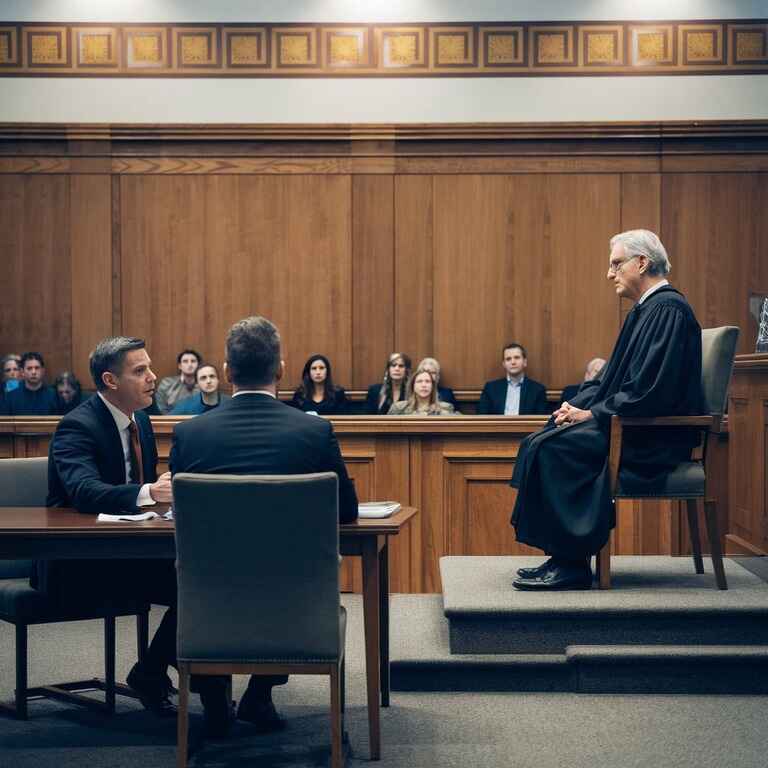
Defenses Against Pickpocketing Charges
Being charged with pickpocketing doesn’t automatically make you guilty. Several defenses can be used to challenge the charges in court.Lack of Intent
To be guilty of pickpocketing, there must be intent. This means the defendant purposely took the property without the owner’s knowledge or consent. If the defendant can prove they didn’t intend to steal, they may avoid a conviction.- Accidental theft: If the item was taken by mistake, it might not be considered pickpocketing.
- Lack of awareness: If the defendant didn’t know they were taking someone’s property, they may argue they weren’t acting with criminal intent.
False Accusations
Sometimes, people are wrongly accused of pickpocketing. In such cases, the defense could argue that someone else falsely identified or framed the defendant. The prosecution must prove beyond a reasonable doubt that the defendant was indeed the thief.Mistaken Identity
Mistaken identity is a common defense in criminal cases, including pickpocketing. It’s possible that someone else committed the crime, and the defendant is simply in the wrong place at the wrong time. In these cases, the defendant may provide an alibi or argue that the victim or witnesses misidentified them.How to Present a Mistaken Identity Defense
If you’re facing charges based on mistaken identity, your attorney may challenge the identification process. This could involve questioning the accuracy of witness descriptions or the reliability of surveillance footage.Impact of a Pickpocketing Conviction on Your Criminal Record
Effects on Employment Opportunities
A pickpocketing conviction can affect your ability to find a job. Many employers conduct background checks, and a criminal record can make it harder to get hired, especially in industries that require trust or handling money.- Job Restrictions: Certain jobs, like those in banking or security, may be off-limits to those with a criminal record.
- Long-Term Effects: A criminal record can limit your opportunities in various fields, even years after a conviction.
Effects on Immigration Status
For non-citizens, a conviction for pickpocketing can have serious immigration consequences. It may lead to deportation or prevent you from becoming a legal resident or obtaining a visa.- Deportation: If you’re not a U.S. citizen, a felony conviction can lead to deportation.
- Visa Issues: Pickpocketing charges can make getting or renewing a visa more difficult, especially if you are convicted.
Long-Term Consequences
The long-term consequences of a pickpocketing conviction go beyond just job or immigration issues. A criminal record can follow you for life, affecting personal relationships, reputation, and future opportunities.- Social Stigma: Being convicted of a crime can create a lasting social stigma.
- Financial Consequences: Fines, court costs, and legal fees can add up, causing financial strain long after the case is resolved.
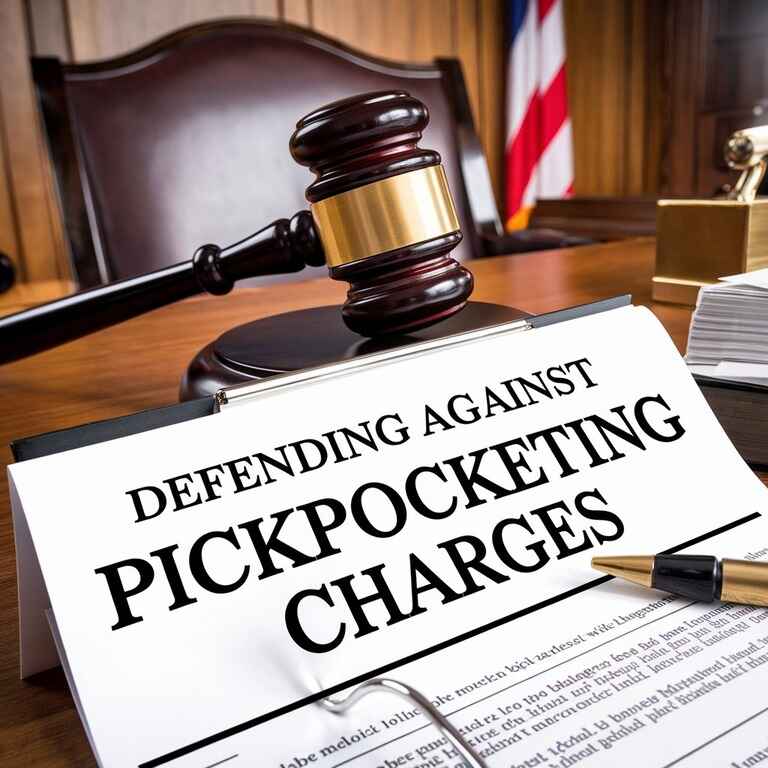
How to Defend Against Pickpocketing Charges in Las Vegas
Consulting an Experienced Criminal Defense Lawyer
If you’ve been charged with pickpocketing, it’s crucial to consult an experienced criminal defense lawyer immediately. They can help you understand the charges, explain your legal rights, and guide you through court. A lawyer experienced in pickpocketing and theft cases can also build a strong defense strategy tailored to your situation.- Legal Expertise: A defense lawyer knows the local laws and can identify weaknesses in the prosecution’s case.
- Peace of Mind: With a lawyer by your side, you won’t have to navigate the complex legal system alone.
- Faster Resolution: Experienced attorneys can help resolve your case quickly, sometimes avoiding trial altogether through plea bargains.
Importance of Legal Representation
Having legal representation is essential when facing any criminal charge, especially pickpocketing. With a lawyer, you can avoid making costly mistakes that could harm your defense. A lawyer can ensure that your rights are protected, and they’ll help you present the best possible defense.Possible Defense Strategies
An experienced criminal defense attorney will explore several defense strategies depending on the specifics of your case. Here are some common tactics:Negotiating for Reduced Charges
In some cases, a defense lawyer may be able to negotiate with the prosecutor for reduced charges or a more lenient sentence. For instance, if the value of the stolen item is low, your lawyer might persuade the prosecutor to drop the felony charge to a misdemeanor, reducing the severity of the penalties.- Plea Bargaining could involve agreeing to plead guilty to a lesser offense in exchange for a more favorable outcome.
- Alternative Sentencing: The lawyer may argue for probation instead of jail time for first-time offenders.
Challenging the Evidence
One of the most effective defense strategies is to challenge the evidence. The defense lawyer can review all the evidence presented by the prosecution, including:- Surveillance footage: If the footage is unclear or inconclusive, the defense can argue that it doesn’t prove the defendant’s involvement.
- Witness statements: If there are discrepancies in witness testimonies, the defense can use this to weaken the prosecution’s case.
- Physical evidence: If the stolen items weren’t found in the defendant’s possession, the defense can argue there is no proof linking the defendant to the crime.
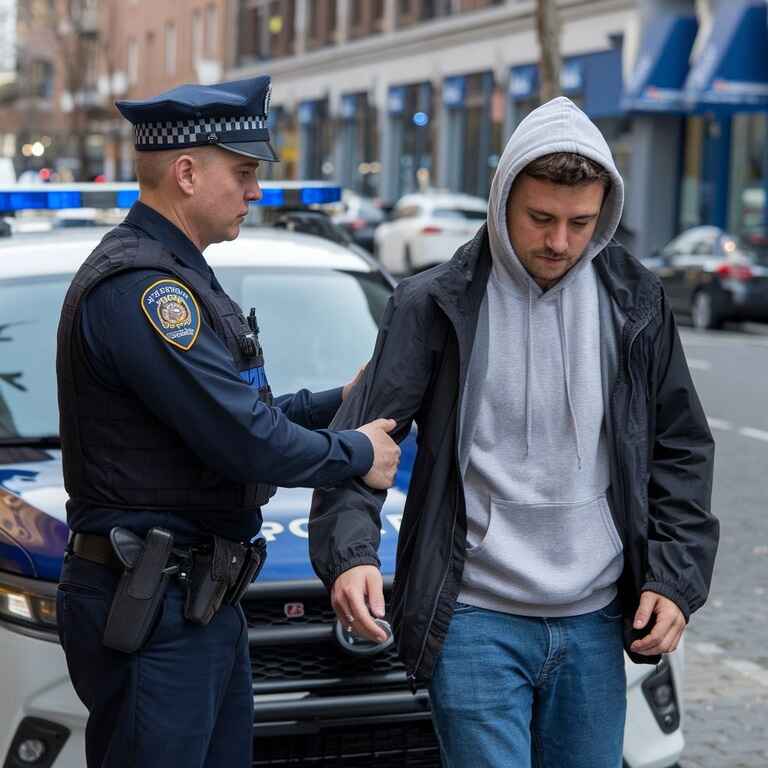
Steps to Take if You Are Arrested for Pickpocketing
What to Do Immediately After an Arrest
If you are arrested for pickpocketing, staying calm and knowing your rights is crucial. The first thing you should do is remain silent. You have the right to remain silent, and anything you say can be used against you in court.- Don’t Admit Guilt: Even if you didn’t commit the crime, it’s best not to say anything until you have legal representation.
- Request an Attorney: Ask for an attorney immediately. Your lawyer will help protect your rights and advise you on what to do next.
Your Rights During the Arrest and Afterward
During an arrest, you have several necessary rights, which include:Right to Remain Silent
You are only required to speak to the police or answer any questions once your lawyer is present. It’s crucial to exercise this right, especially if you are innocent or unsure how your statements might affect your case.Right to an Attorney
You have the right to an attorney, even if you cannot afford one. If you cannot hire a private lawyer, a public defender will be appointed to represent you. Contacting a lawyer as soon as possible is essential, as they will protect your rights throughout the process.Understanding the Legal Process for Pickpocketing Charges in Las Vegas
What Happens After an Arrest
After you’ve been arrested for pickpocketing, the legal process begins. The first step is typically booking at the police station, where your personal information is recorded. Following this, you will be scheduled for an arraignment.- Arraignment: During the arraignment, the judge will inform you of the charges against you. You will also enter your plea: guilty, not guilty, or no contest.
- Bail: The judge will set an amount if you’re eligible for bail. You’ll remain in jail until your trial or hearings if you cannot pay the bail.
Pretrial Procedures
Once you’ve been prosecuted, several pretrial procedures will occur before your trial begins.Bail and Bond
Bail is the amount you must pay to be released from jail while you await trial. If you cannot afford bail, you may be able to apply for a bond, which is a loan for bail paid to a bonding company.- Cash Bail: The total bail amount is paid upfront.
- Bail Bond: A non-refundable fee is paid to a bonding company, covering the bail.
Preliminary Hearings
Before the trial, there may be a preliminary hearing, where the judge will decide if there is enough evidence to proceed with the case. The charges could be dropped if the judge believes the evidence is insufficient. If there is enough evidence, the case moves forward to trial.Trial Process for Pickpocketing Cases
If your case goes to trial, the process is as follows:Jury Selection
The first step in a trial is selecting a jury. Both the prosecution and defense will ask potential jurors questions to ensure their impartiality and fairness.Opening Statements
After the jury is selected, both sides will make opening statements. This is where each side explains its version of the case and what it intends to prove during the trial.Closing Arguments
At the end of the trial, both sides can give closing arguments, summarizing the evidence and attempting to convince the jury of their position.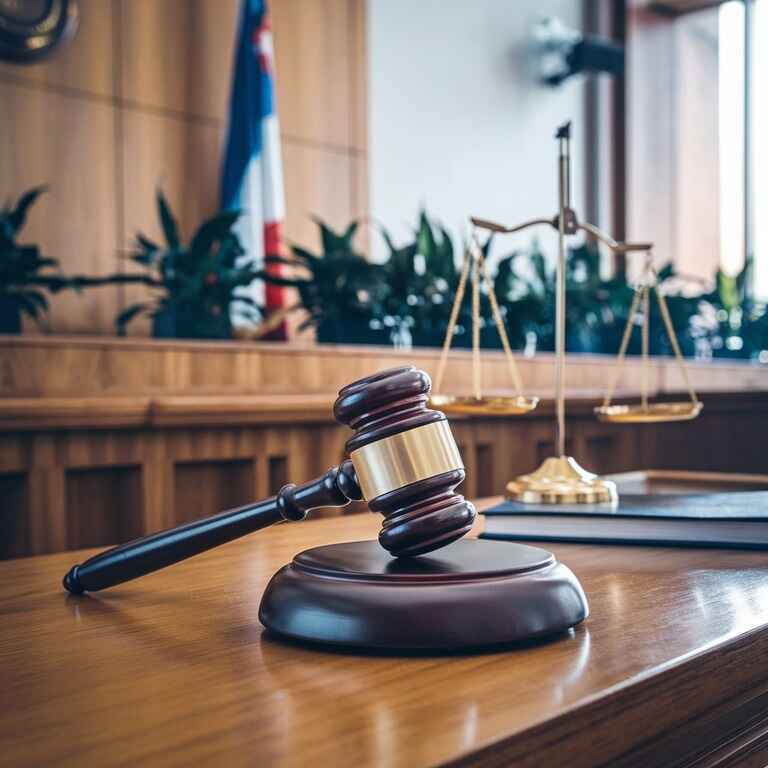
Possible Outcomes of Pickpocketing Cases in Las Vegas
Plea Bargaining in Pickpocketing Cases
A plea bargain may be offered in many criminal cases, including pickpocketing. A plea bargain is an agreement between the defense and the prosecution where the defendant agrees to plead guilty to a lesser charge in exchange for a reduced sentence or other concessions.How Plea Bargaining Works
When facing pickpocketing charges, your attorney might negotiate with the prosecutor for a plea deal. This could involve:- Reduced Charges: You could face lighter penalties if you plead guilty to a lesser offense, like petty theft, instead of grand larceny.
- Reduced Sentencing: Even if you plead guilty to the original charge, the prosecutor might agree to a shorter jail sentence or less severe punishment.
Sentencing Options for Pickpocketing Convictions
If you are convicted of pickpocketing, the sentencing options vary depending on whether the crime was a misdemeanor or a felony. Here are some of the most common sentencing options:Misdemeanor Pickpocketing Convictions
For misdemeanor pickpocketing, the judge may impose:- Jail Time: Up to six months in jail.
- Fines: Fines of up to $1,000.
- Probation: Instead of jail time, you might receive probation, which involves being monitored by a probation officer and complying with certain conditions.
- Community Service: Sometimes, community service is part of a sentence to make amends for the crime.
Felony Pickpocketing Convictions
For felony convictions, the consequences are much more severe:- Prison Time: Up to five years, depending on the value of the stolen property and your criminal record.
- Fines: Fines of up to $10,000.
- Restitution: The defendant may be ordered to pay restitution to the victim, which is the cost of the stolen items or damages caused.
Probation and Alternative Sentencing Options
Probation is sometimes an option, particularly for first-time offenders or in cases involving misdemeanor pickpocketing. If sentenced to probation, the defendant must follow strict guidelines set by the court, such as:- Regular Check-ins with a Probation Officer: You must report regularly to ensure compliance with the conditions of probation.
- Community Service: Some judges require individuals on probation to complete several community service hours.
- Drug or Alcohol Counseling: If substance abuse played a role in the offense, counseling may be required.
Expungement of Pickpocketing Charges
If you are convicted of pickpocketing, it’s not necessarily permanent. In some cases, you may be eligible for expungement, which is the legal process of removing a conviction from your criminal record.- Eligibility for Expungement: If you complete probation and avoid further legal trouble, you may qualify for expungement after a certain period.
- Benefits of Expungement: Expungement clears your criminal record, which can help with job applications, housing, and other areas of life that may be affected by a criminal history.
How Pickpocketing Charges Can Affect Your Future
Social Stigma and Reputation
A conviction for pickpocketing can carry a lasting social stigma. Even after serving your sentence, people may view you differently because of your criminal record.- Impact on Relationships: Friends, family, and colleagues may judge you based on your conviction. This can strain personal relationships and lead to feelings of isolation.
- Reputation Damage: A criminal conviction may follow you for years, potentially affecting your reputation and how others perceive you.
Financial Consequences
Pickpocketing charges also bring financial burdens. These include fines, legal fees, and potential restitution to the victim. Additionally, a criminal conviction can make it more difficult to find a well-paying job.- Court Costs and Legal Fees: Even if you have a public defender, there will still be costs associated with your defense. These can add up quickly and put a strain on your finances.
- Difficulty Getting Employment: Many employers run background checks and may be reluctant to hire someone with a criminal history, especially for positions involving trust or handling money.
Long-Term Impact on Employment
A pickpocketing conviction can make it more difficult to find work, particularly in industries like banking, law enforcement, and hospitality, where trust is critical. Employers may hesitate to hire someone with a criminal record, even for non-related jobs.- Job Opportunities: Many positions require clean background checks. A conviction for pickpocketing could limit your job prospects.
- Professional Licenses: Certain professions require a clean criminal record. A conviction might prevent you from obtaining or renewing licenses in healthcare or finance.
Impact on Travel and Immigration Status
For non-citizens, a pickpocketing conviction can also have serious immigration consequences. Sometimes, a conviction could result in deportation or prevent you from obtaining a visa or citizenship.- Deportation: A felony conviction for pickpocketing can lead to deportation if you are not a U.S. citizen.
- Difficulty Obtaining a Visa: Convictions can complicate your ability to enter or remain in the United States if you are a foreign national seeking a visa.
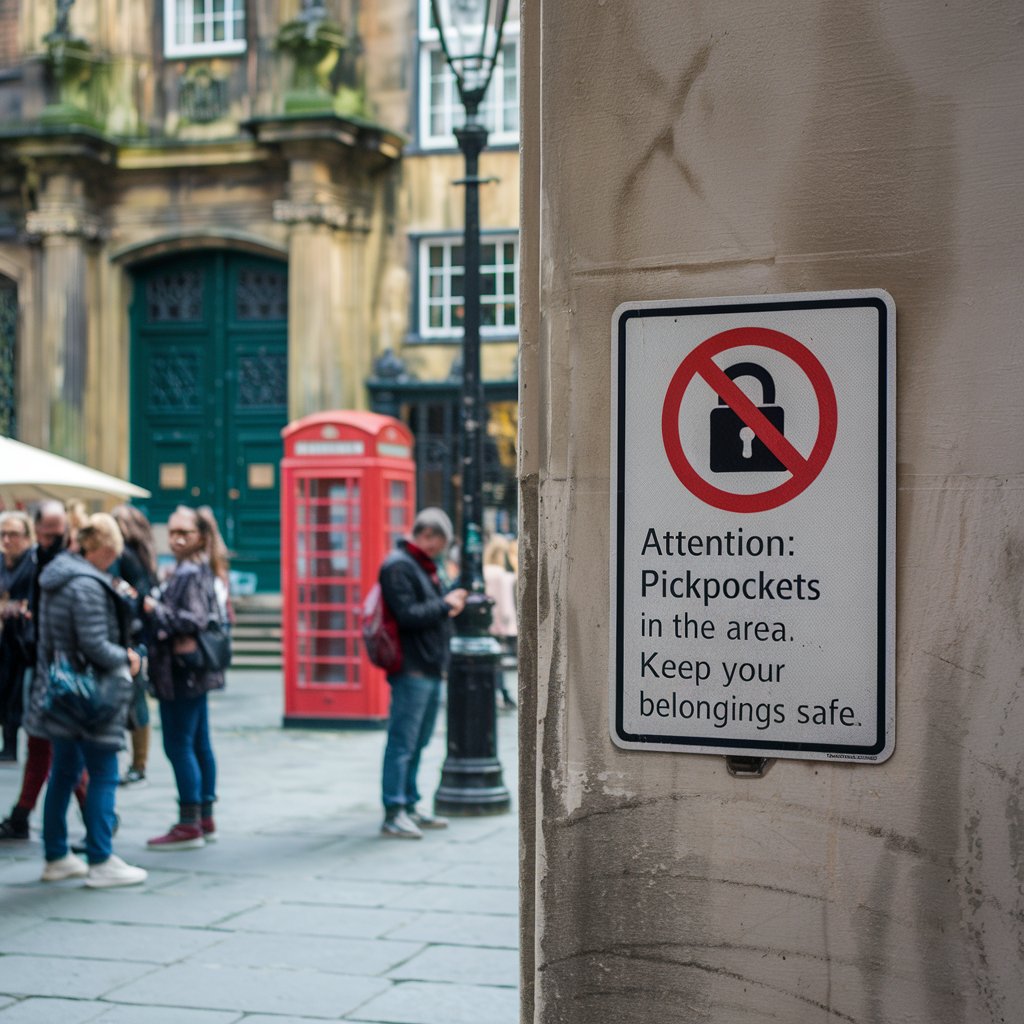
Preventing Pickpocketing: Tips for Tourists and Locals
While it’s essential to understand the legal aspects of pickpocketing charges, knowing how to avoid becoming a victim is equally crucial.Simple Tips to Protect Yourself from Pickpockets
Being aware of your surroundings and taking simple precautions can significantly reduce your chances of falling victim to pickpocketing:- Keep Valuables Close: Avoid keeping wallets, phones, or other valuables in easily accessible pockets or bags. Instead, use a money belt or hidden pouch.
- Be Aware of Your Surroundings: Stay alert in crowded areas. Pickpockets often work in pairs, one creating a distraction while the other steals.
- Use Anti-Theft Bags: Consider using anti-theft features, like locks or cut-resistant straps.
- Limit Distractions: Avoid using your phone or other distractions while walking, especially in crowded areas.
- Trust Your Instincts: If you feel something is off or notice someone acting suspiciously around you, trust your instincts and move away from the situation.
Breaking It All Down
The Importance of Taking Pickpocketing Charges Seriously
Pickpocketing charges in Las Vegas can have serious consequences. Whether you’re facing a misdemeanor or a felony charge, the outcome can affect your freedom, finances, and reputation. It’s crucial to treat these charges seriously from the very beginning.- Legal Ramifications: A conviction can result in significant jail time or steep fines, even if the crime seems minor.
- Long-Term Consequences: A criminal record could make finding a job, traveling, or maintaining personal relationships harder.
- Social Stigma: Being charged with or convicted of theft can damage your reputation, affecting how others view you.
Why You Need a Defense Lawyer
If you’re facing pickpocketing charges, one of the most important steps you can take is to hire a qualified defense attorney. A good lawyer will help protect your rights and ensure that you are treated fairly throughout the legal process.- Expert Advice: A defense lawyer will give you the best advice based on their experience with similar cases.
- Strategic Defense: A lawyer will look at every aspect of your case, including the evidence and any potential defenses.
- Peace of Mind: Knowing you have a professional on your side will reduce stress and help you navigate the process.
Taking Steps to Move Forward
If you are convicted of pickpocketing, all is not lost. Many people can turn their lives around after a conviction. Here are some things to keep in mind if you face this situation:- Follow Court Orders: Complete any community service or probation requirements.
- Work Toward Expungement: After fulfilling your sentence, you may be able to have the conviction removed from your record.
- Rebuild Your Life: With time, you can rebuild your reputation and regain trust in your personal and professional relationships.

Frequently Asked Questions
What should I do if I am accused of pickpocketing in Las Vegas?
If you’re accused of pickpocketing, staying calm and avoiding saying anything that could be used against you is essential. You have the right to remain silent and request a lawyer. Contact a defense attorney as soon as possible to protect your rights.
Can pickpocketing charges be dismissed?
Yes, in some cases, pickpocketing charges can be dismissed. This can happen if there is insufficient evidence or a lack of intent or if your defense attorney can successfully challenge the prosecution’s case. Your lawyer will assess your situation and work toward the best possible outcome.
Can I avoid jail time for a pickpocketing charge?
It’s possible to avoid jail time, especially if you’re charged with a misdemeanor or have no prior criminal record. Alternatives such as probation, community service, or attending counseling may be available. If possible, your defense lawyer will negotiate with the prosecution to reduce or eliminate jail time.
How do prosecutors prove pickpocketing charges?
Prosecutors must prove that you intentionally took someone else’s property without permission. This might include eyewitness testimony, surveillance footage, and physical evidence, such as stolen items in your possession. The prosecution must prove guilt beyond a reasonable doubt for a conviction.
What happens if I don’t have the stolen property when arrested?
Even if the stolen property is not found on you, you can still be charged with pickpocketing if sufficient evidence shows you intended to rob. For example, witness testimony or video footage may be used to prove that you took the item. However, the absence of the stolen property can make the case more complicated for the prosecution to prove.
What’s the difference between misdemeanor and felony pickpocketing?
Misdemeanor pickpocketing typically involves stealing property valued at less than $1,000 and is punishable by less severe penalties. Felony pickpocketing usually involves more significant amounts of stolen property or repeat offenses, leading to harsher penalties, including longer prison sentences.
Can I be charged with pickpocketing if I accidentally take someone else’s property?
It is unlikely that you would face pickpocketing charges for an accidental theft. In most cases, for pickpocketing to apply, there must be an intentional act of theft. However, if the incident looks suspicious or there is evidence of intent to steal, you could still face charges.
How long does it take for a pickpocketing case to be resolved in Las Vegas?
The time it takes to resolve a pickpocketing case depends on various factors, such as the case’s complexity, whether a plea deal is reached, and how crowded the court docket is. A resolution could take several months, especially if the case goes to trial.
Will a pickpocketing charge appear on my criminal record forever?
A pickpocketing conviction can appear on your criminal record unless you can have it deleted. Expungement is possible after completing your sentence, and it can clear your record, allowing you to move on without the conviction showing up on background checks.
Can I travel internationally if I’m convicted of pickpocketing?
If you’re convicted of a serious felony, such as grand theft, it could impact your ability to travel internationally. Some countries may deny entry to individuals with a criminal record. It’s essential to check the visa requirements of the country you plan to visit, as a criminal record could affect your chances of obtaining a visa.
Will a pickpocketing conviction prevent me from getting a job?
A pickpocketing conviction can make finding specific types of employment more difficult, especially in industries that require trust, like finance or government. However, many employers will give individuals with criminal records a second chance. Expressing your conviction to improve your job prospects may also be possible.
How can I reduce the chances of being accused of pickpocketing?
To avoid being accused of pickpocketing, it’s vital to act within the law, respect others, and avoid suspicious behavior. If you’re in a crowded area, ensure you know your surroundings and do not engage in actions that could be misinterpreted as theft.

Glossary
Expungement
The legal process by which a criminal conviction is removed from an individual’s public record. This can allow a person to move forward without the conviction showing up on background checks.
Felony
A more serious criminal offense, often involving significant harm or theft. A felony conviction can lead to harsher penalties, including longer prison sentences and higher fines.
Misdemeanor
A less serious criminal offense typically carries lighter penalties, such as shorter jail sentences, more minor fines, or probation. Misdemeanors usually involve crimes with lower severity, like petty theft.
Plea Bargain
An agreement between the defense and the prosecution where the defendant agrees to plead guilty to a lesser charge or accept a reduced sentence in exchange for avoiding trial.
Probation
A court-ordered period of supervision allows an individual to remain in the community under specific conditions instead of serving jail or prison time. Violating the terms of probation can result in more severe consequences.
Restitution
A court-ordered payment made by the defendant to the victim to compensate for the loss or damage caused by the crime, such as replacing stolen property or covering medical expenses.
Sentencing
The legal process through which a judge determines the punishment for a convicted individual based on the crime committed and other factors, such as prior criminal history.
Surveillance Footage
Video recordings captured by security cameras or other surveillance equipment may be used as evidence in criminal cases, including pickpocketing, to prove the defendant’s involvement.
Testimony
A statement made by a witness under oath, typically given during a trial. Witnesses may provide testimony about what they saw or heard regarding the crime.
Theft
The unlawful taking of someone else’s property with the intent to permanently deprive the owner of it. Theft can range from petty theft (small value items) to grand larceny (large value items).
Vandalism
A criminal act involves intentionally destroying or defacing someone else’s property. While not directly related to pickpocketing, vandalism is another theft-related crime.
Victim Impact Statement
A written or oral statement made by the victim of a crime that describes how the crime has affected them emotionally, physically, and financially. This statement may be considered during sentencing.
Witness
A person who has observed a crime or has information relevant to the case. Witnesses may provide crucial evidence supporting or disprove charges in a pickpocketing case.
Probation Officer
A government official who supervises individuals sentenced to probation. They ensure the individual complies with the court’s conditions and may report violations to the court.
Public Defender
A lawyer is appointed by the court to represent a defendant who cannot afford to hire a private attorney. Public defenders are often responsible for providing legal defense in criminal cases.
Burglary
Burglary is the illegal entry into a building or structure with the intent to commit theft or another crime, such as vandalism or assault. While not directly tied to pickpocketing, burglary is another form of theft-related offense.
Criminal Record
A documented history of a person’s criminal convictions and arrests. A criminal record can impact employment, housing, and travel.
Prosecutor
A lawyer representing the state or government in criminal cases works to prove the defendant’s guilt in court. The prosecutor must present enough evidence to secure a conviction in a pickpocketing case.
Defendant
The individual who has been charged with a crime and is standing trial. In a pickpocketing case, the defendant is accused of unlawfully taking someone else’s property.
Bail
A sum of money or property pledged to the court as a guarantee that the defendant will appear for their scheduled court hearings. Bail can be set before trial, allowing the defendant to remain free until their case is resolved.
Grand Larceny
A more severe form of theft that involves stealing property worth a significant amount of money. Grand larceny charges are typically classified as felonies and carry heavier penalties than petty theft or misdemeanor theft.
Petty Theft
Petty theft is the unlawful taking of property with a lower monetary value. It is typically classified as a misdemeanor. Petty theft often results in lighter penalties than grand larceny.

Additional Resources for You
For individuals grappling with criminal charges, having the right resources and legal guidance is paramount. Our lead attorney, Molly Rosenblum, Esq., has not only excelled in representing clients but has also developed a comprehensive suite of resources to help you understand the complexities of various charges. Here’s a roundup of the invaluable resources crafted by Molly Rosenblum, Esq., aimed at providing you with the knowledge and guidance you need during challenging times:
Theft Crime Defense Lawyer: Navigate the intricacies of theft charges and defense strategies. Explore more.
White Collar Crime: Understand the nuances and defense approaches for white-collar crime allegations. Learn the details.
Racketeering Charges: Dive into the specific aspects and legal considerations of facing racketeering charges. Read further.
Fraud Charges: Get insights into fraud allegations and how to navigate the legal system if faced with such charges. Discover more.
Embezzlement Charges: Understand the serious nature of embezzlement charges and explore potential defense strategies. Learn more.
Identity Theft Charges: Grasp the complexities of identity theft charges and the legal paths available. Explore your options.
Larceny Charges: Familiarize yourself with the specifics of larceny charges and the legal implications. Find out more.
Credit Card Fraud Charges: Delve into the realm of credit card fraud and the associated legal challenges. Understand the details.
Burglary Charges: Navigate the legal landscape surrounding burglary charges and defense mechanisms. Read further.
Robbery Charges: Get a comprehensive understanding of robbery charges and potential defense strategies. Explore more.
Grand Theft Charges: Learn about the complexities and defense options when facing grand theft charges. Discover the specifics.
Molly Rosenblum, Esq. is dedicated to providing accessible, in-depth information to assist you in times of legal challenges. Each resource is crafted with expertise, offering specialized knowledge and guidance to navigate the intricacies of various criminal charges with confidence.

Offsite Resources for You
Here are some additional offsite resources that might be useful for further learning:
American Bar Association: The American Bar Association provides a wealth of resources on various legal topics, including criminal law.
Nolo’s Criminal Law Center: Nolo offers straightforward and comprehensive explanations of general criminal law concepts.
The National Association of Criminal Defense Lawyers: NACDL promotes research in the field of criminal law and shares valuable resources for lawyers and the public.
The Innocence Project: This organization is dedicated to exonerating wrongfully convicted individuals through the use of DNA testing and advocating for criminal justice reform.
The Legal Information Institute’s Criminal Law Overview: This resource from Cornell Law School offers a broad overview of criminal law.
The United States Department of Justice: The DOJ provides information on federal laws, including those related to theft and larceny.
Why You Haven't Already Hired a Defense Attorney to Help You
Watch this short video to take the next big step toward defending your rights against your felony charge.

A Special Message from Our Lead Attorney

Dear Valued Reader,
Thank you so much for taking the time to read through these resources on pickpocketing charges. I hope they have provided you with some insight and comfort during what I understand can be a stressful time.
Please remember that while these resources are designed to offer general guidance, your situation is unique and deserves personalized attention and advice. You can reach out to us for a free consultation. You can reach our office at (702) 433-2889.
We look forward to the opportunity to help you navigate through this challenging time.
Sincerely,
Molly




